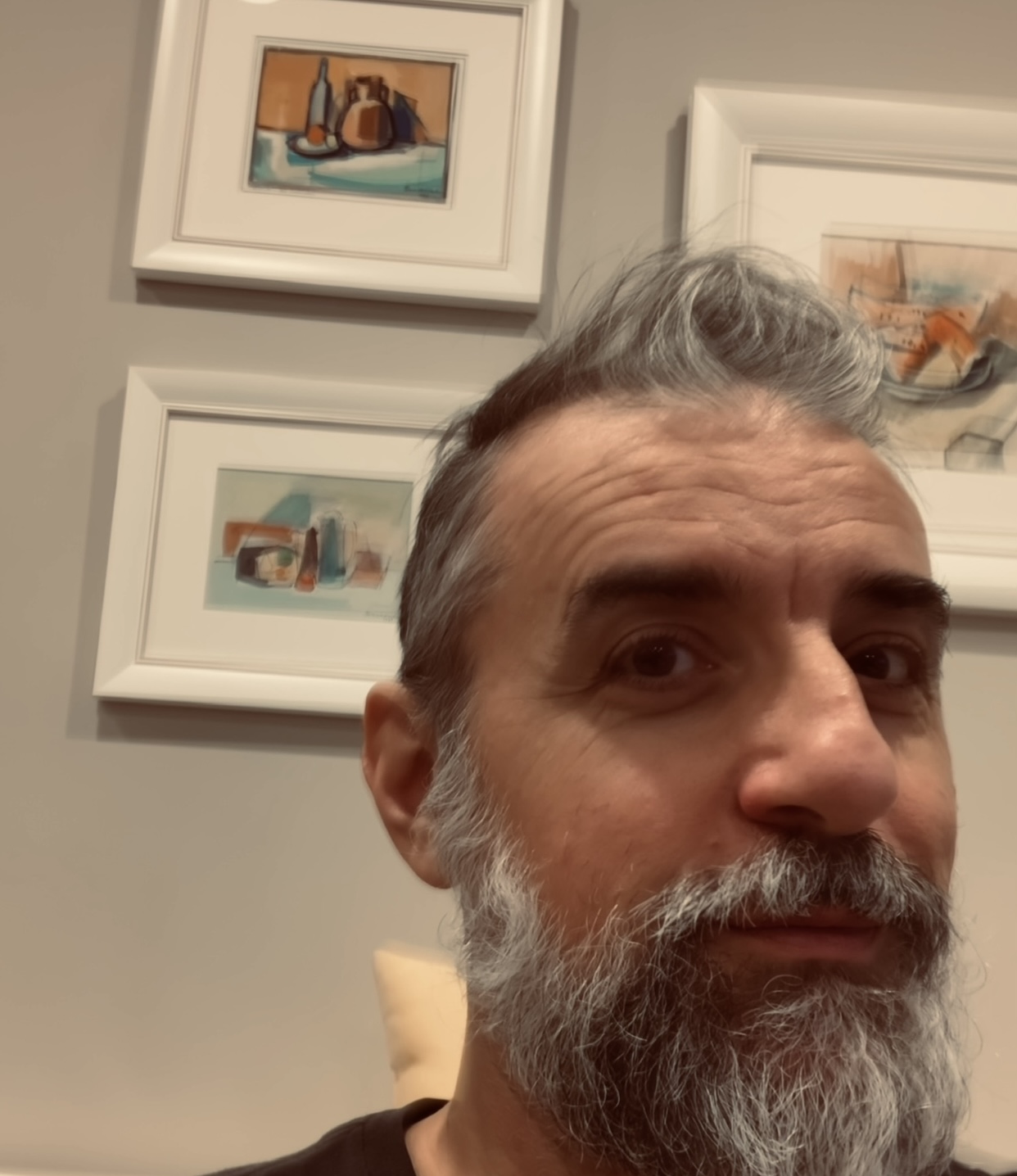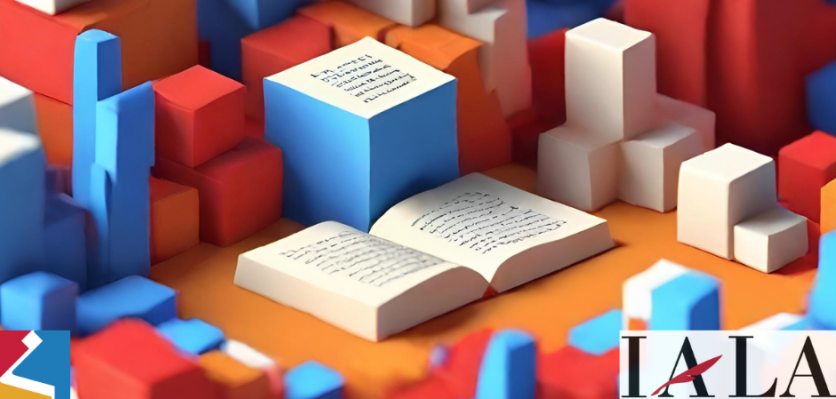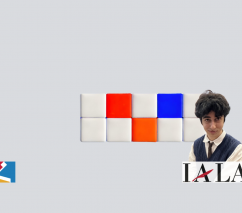IALA X h-pem | 2023 Young Armenian Poets Awards: On Visibility
October 10, 2023
In a time of turbulence and uncertainty, the Young Armenian Poets Awards (YAPA) stands as a beacon of hope and expression. Founded and directed by Alan Semerdjian, YAPA of the International Armenian Literary Alliance (IALA) collaborates with h-pem, which, in turn, seeks to provide an authentic audience for the annual awards. As our nation grapples with turmoil, YAPA invites young talents to explore profound existential questions. How can poetry become a bridge connecting Armenia and its vast diaspora? What dialogues are essential within the Armenian community and with the world? These questions are met with insightful responses, as young awardees delve deep into their souls, weaving symbolism, fantasy, and elegy into their work.
In 2023, the theme of "Visibility" resonates deeply as the Armenian people face challenging times, particularly in Artsakh. The lack of media coverage and international support is disheartening, leading many to feel as though they are disappearing before their own eyes. However, YAPA continues to shine a spotlight on these issues through the power of poetry. This year's winning and honorable mention poems offer poignant reflections on identity, remembrance, and resistance.
Gregory Djanikian, Armine Iknadossian, Alan Semerdjian, and Raffi Wartanian, distinguished individuals in the literary world, provide insightful commentary on the winning works. These poems encapsulate the essence of the Armenian spirit, addressing the struggles and resilience of a people whose stories deserve to be told. YAPA's mission to illuminate the dark corners of our universe through poetry remains steadfast, and it is through the voices of these young poets that we find a glimmer of light and hope during these somber times.
Read on to understand more of YAPA's 2023 edition through Alan Semerdjian's lenses.
It’s hard not to think of the prompt for this year’s Young Armenian Poets Awards (YAPA) as a dark harbinger of things to come for the Armenian people of Artsakh and, indeed, all Armenians around the globe. This notion of visibility and how it relates to our identity and experience is now profoundly impacting us to our very core, as nearly all of Artsakh’s 120,000 residents have been forced to leave their homeland and have become refugees. The lack of thoughtful and responsible media coverage is enraging, and the scarceness of support internationally almost stupefying considering the warning bells and calls for action from a host of notable institutions and human rights/genocide scholars. One might say we are disappearing right before our own eyes, and for the families on the ground who have lost so much already, the situation is unfathomably worse.
Despite the lack of visibility and amidst the growing alarm regarding the blockade of the Lachin Corridor in the months leading up to our catastrophic present, young writers from the Diaspora, Armenia, and Artsakh itself turned to the power of language and poetry to help them make sense out of senselessness. Of course, not enough praise can be granted to the teachers, family members, and friends in their lives who shared with them our call for work (and sometimes under incredibly strenuous conditions), but the truest heroes are these young poets—all of them, not just the few who are recognized as winners—who chose to, as Armenian writer Gostan Zarian once wrote, “illuminate some dark corner of the universe.” Spending meaningful time with their words is akin to bathing in a kind of warm and necessary light, and while it’s hard to conjure up hope these days, it’s not so difficult to see and be moved by their resolve.
Once again, I want to thank our excellent judges—Gregory Djanikian, Armine Iknadossian, and Raffi Wartanian—who read the works without any biographical information and selected outstanding poems, carefully crafted and full of vision and artistry, for which they have provided some thoughtful and engaging commentary here. And thank you, especially, to the International Armenian Literary Alliance’s Program Manager, Hovsep Markarian, and Founder/Director Olivia Katrandjian, whose combined assistance was essential in the delivering of these new voices to the world. With regard to delivering, we’re grateful for our ongoing partnership with the Hamazkayin Armenian Educational and Cultural Society’s literary/artistic arm, h-pem magazine, which has been the destination and first online home for the Young Armenian Poets Awards for the past three years. We’re ever so grateful.
Finally, ahead of the three winning poems and our honorable mention, I’d like to share the words of entrants Alisa Tavadyan Armen and Angelika Atayan Ararat, a pair of young writers (and best friends) from Taghavard, Artsakh whose work (translated by Lilly Torosyan) was not selected this year but whose introductory submission notes left a formidable impression: “We turned to poetry as necessity…both a salve and a weapon for us,” they wrote. Poetry as “necessity,” both for and against. A salve for our pain. A weapon against our vanishing. I don’t know where Alisa and Angelika are today (and I hope for their well-being)*, but I feel like I can see them, visible and true, clearly in their words. And that—perhaps more importantly—what they see and have seen, all of them, is our greatest teacher as we move forward.
*Editor's note: H-Pem contacted Lilly Torosyan, the platform's former assistant project manager, and has confirmed that Alisa and Angelika have safely made the passage from Artsakh to Armenia.
JUDGES’ COMMENTARY
Gregory Djanikian on Isabel Nargizian’s “Mother my shadow” (Winner):
How interesting that the poem, “Mother my shadow,” begins with a notion of “mother” as a parent whose presence is felt by the speaker even from a long distance away, as if from a safe house, or foreign place. We understand that there has been a separation, between mother and child, that perhaps the mother may even have been stricken and damaged. Yet the mother persists, even awash in blood, even though she has been assaulted, as the poem declares, by the world’s armies. It is then that we begin readjusting our notion of “mother,” gradually sensing that “mother” in this context is none other than Armenia herself, personified, given shape and form in her war-wounded plight. It’s the literal mother who pulls at our heartstrings and leaves us sometimes inconsolable; it’s the metaphoric Mother that identifies us and offers us our cultural incitement to go on. It’s this tension between the literal and the metaphoric that makes the poem so interesting and charged, balancing between one and the other, tactfully and with style.
Gregory Djanikian has published seven collections of poetry with Carnegie Mellon University Press, the latest of which is Sojourners of the In-Between (2020), and his poems have appeared in numerous journals, textbooks, and anthologies. For many years, he directed the creative writing program at the University of Pennsylvania.

Armine Iknadossian on Sofia Viana Ogulluk’s “The Children of Armenia” (Winner):
"The Children of Armenia" is a poem about resistance. It outlines the lack of support from the international community when Armenian issues are at the forefront. The poem calls on ancestors. The poem calls on its community. The poem reaches for a helping hand. The final image is a symbolic representation of the memorial flower often depicted in imagery related to the genocide. It's a fitting end to a powerful piece about remembrance and cries for help that go unheard.
Born in Beirut, Lebanon, Arminé Iknadossian’s family fled to California when she was four
years old to escape the civil war. After graduating from UCLA, Iknadossian earned an MFA in
Creative Writing at Antioch University while teaching full time.
Armine is the author of All That Wasted Fruit (Main Street Rag. Iknadossian’s poetry is featured
in Five South, Ruminate Magazine, HyeBred, Armenian Poetry Project, Whale Road Review,
South Florida Poetry Journal, Cultural Weekly, The San Diego Reader, The Nervous Breakdown
and The American Journal of Poetry. Iknadossian recently received two grants from the Arts Council of Long Beach to write her second volume of poetry. She has also received fellowships from Idyllwild Arts, The Los Angeles Writing Project, and Otis College of Art and Design. Armine is also one of the poets of Project 1521, which brings together artists, writers, and scholars to generate visual and literary works as acts of resistance. Her other passion project is collaborating with the International Armenian Literary Alliance (IALA), where she serves on the advisory board.

Alan Semerdjian on Alessandra Agopian’s “Seen by Armenians” (Honorable Mention):
The word “thrumming” is aptly used early on in Alessandra Agopian’s “Seen by Armenians,” a poem about how we carry within us our ethnic and familial histories, and we’re reminded of the power of these rhythmic and pulsing reverberations in our “blood” that create “sand staining footprints.” Agopian’s poem is well-crafted with impressive moments of chiastic structure, paradox, repetition, and a gorgeous instance of imaginative invention—where the speaker asserts that no one else can see her people or “feel the phantom limb of their rooted guidance”—as it moves towards its bittersweet resolution. It’s a poem unafraid to sing the darkness and brave enough to find resolve despite it.
Alan Semerdjian is an Armenian-American writer, musician, and educator. Recent recognitions include two Pushcart Prize nominations; a Frontier New Poets Award; poems in Poetry International, The Brooklyn Rail, and Fence (forthcoming); and a tweet from Kim Kardashian that made his 2020 spoken word album The Serpent and The Crane (with guitarist/composer Aram Bajakian) viral for a day. Alan's poem "The Writing About It Again" was part of a short, animated film (An Armenian Triptych: Retracing Our Steps, made in collaboration with Bajakian and artist Kevork Mourad) that won recognition in several film festivals. Pulitzer Prize winner Peter Balakian has called his first full-length poetry collection, In the Architecture of Bone (GenPop Books, 2009), “well worth your reading.” Alan has been teaching English in public schools for the past 25 years while recording, releasing, and touring in support of several critically acclaimed collections of music across a range of genres. He is on the advisory board for the International Armenian Literary Alliance, through which he founded and directs the Young Armenian Poets Awards.
Raffi Wartanian on Vladimir Mkrtchian’s “Anahit’s Legacy” (Winner):
Through structure and theme, Peter Balakian’s "Head of Anahit/British Museum" inspired the poet of “Anahit’s Legacy” to craft a work ripe with imagery, insight, and relevance to the horrifying present moment as the murderous petro-dictatorship in Baku is, in real time, subjecting indigenous Armenians in Artsakh to a genocide—subcontracted from Ankara, approved by Moscow, ignored by Washington and Brussels, perpetrated with impunity. “Nestled soundly in the American dream / it all seems so far, I pretend to forget it,” writes the poet, grappling with the distance afforded by America’s nightmare of doublespeak marketed deceptively as a worthwhile dream. Amnesia, the writer suggests, is make-believe; the “it” of human barbarity—“Armenian, Yazidi, Atheist, / man or woman, dead by proxy; / beheaded, raped, mutilated”—transcends forgetfulness, for the past is present. Today's Armenian nightmare is conjured through the poet’s words—“Years could unfold into centuries / and wrap history’s carriage as / precise drapery, only to / lose it all in a second / to invade to break / to ravish to rape.” These prescient lines, likely written during the nine-month blockade of Artsakh but before the latest military invasion since September 19, 2023, gesture to the current ravish and rape of innocents in Artsakh, of children murdered in Martakert, mothers slaughtered in Nerkin Horatagh, elders burned alive in Stepanakert, an entire Armenian republic wiped off the map, lost in a second. As a cadre of oligarchs, technocrats, and do-nothing bureaucrats push the "civilized" world further into a hyper normalized state of mass delusion, the poet reminds us that the closest we might get to recognition is to perform as the exotic ethnic thing to be compared to some other greater symbol of erudition, like “Anahit–who lives in the guise of Aphrodite.” Here, we read the words of an insightful young poet who is manifesting what Peter Balakian has oft recounted as the power in poetry and writing to bear witness.
Raffi Joe Wartanian is a writer, musician, and educator who teaches writing at UCLA and currently serves as the inaugural Poet Laureate in the City of Glendale, California. His essays have appeared in The New York Times, Los Angeles Review of Books, University of Texas Press, Miami Herald, The Baltimore Sun, Lapham’s Quarterly, Outside Magazine, and elsewhere; and his poetry has appeared in The Los Angeles Press, No Dear Magazine, Ararat Magazine, and beyond. Raffi has taught writing to veterans at the Manhattan VA, incarcerated writers at Rikers Island, youth in Armenia, and undergraduates at Columbia University, where he earned an MFA in Writing. He is the recipient of grants and fellowships from The Fulbright Program, Eurasia Partnership Foundation, and Humanity in Action. A multi-instrumentalist, composer, lyricist, and singer-songwriter, Raffi has performed internationally and released two full-length albums of original music. Raffi is the proud grandson and great-grandson of Armenian Genocide survivors, the son of Armenian parents from Lebanon, and, with his siblings, the first generation in his family to be born in the United States, in the great city of Baltimore. Raffi founded Letters for Peace in 2017 and currently serves on the advisory board of the International Armenian Literary Alliance.
Any additional references or recommendations? We would love to hear your suggestions!
Join our community and receive regular updates!
Join now!





Attention!